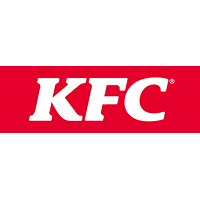Andrew Fifita joked that he wished Cameron McInnes could play for Tonga at the end-of-season World Cup after the star forward surprised his new Sharks team-mates by arriving at the club’s cultural day wearing a traditional tupenu and ta’ovala.
McInnes’s surname is of Scottish origin but his partner Rachel has Tongan heritage, and they named their now almost four-year-old son, Talanoa.
“Cam explained that he is a full Australian dude, but he is culturally aware of the Tongan side,” Fifita said. “He came in full tupenu, the shirt, the ta’ovala … everything was spot on with Cam. He knows how to represent, he knows how it is with the church and about Tongan culture.
“It was a real eye opener for myself. We would love him to declare for Tonga at the World Cup but if not, hopefully his son can play in a few years.”

While McInnes isn’t eligible to play for Tonga, his ties to the Pacific nation was just one of the things Cronulla players learned about each other as they detailed their backgrounds, shared food, danced and played games during the pre-season cultural session at PointsBet Stadium.
Cronulla players spoke about the value of the session ahead of the NRL’s multi-cultural round and praised new coach Craig Fitzgibbon for the emphasis he has placed on culture at the club.
The Sharks had seven players involved in February's All Stars match and while some rival coaches were concerned about their stars missing training or risking injury Fitzgibbon understood the benefits of them embracing their culture.
“It was honestly one of the best days I have been a part of in my NRL career,” halfback Nicho Hynes said. “We had the Tongan boys, the Samoan boys and us Indigenous boys get up and talk about where we are from, and our mob.

“To learn about who your brothers are and where they are from was just cool, especially to see the raw emotion and how proud they were about talking about it.”
Winger Matt Ikuvalu said: “All of the Tongan boys wore our tupenus and our ta’ovalas, which is kind of like a sarong and another wrap around it. We spoke about our culture and we had a big feast with a few pigs on a spit. It was just a really good day”.
Fifita’s father bought four pigs that he started cooking from 2am, while the Tongan players, including Ikuvalu, Siosifa Talakai and Sione Katoa, prepared traditional food and made Otai, a famous Tongan watermelon drink.
The Samoans, who included Ronaldo Mulitalo, Braden Hamlin-Uele, Franklin Pele and Jonaiah Lualua, did the same, while the players split into teams based on their heritage to play games.
“We put on a feed for the boys and everyone ripped into it, which is really nice because they got a taste of what our culture is about,” Mulitalo said.
“We had a bit of taro, chop suey [sapasui], raw fish and all of the islander foods … it kind of took us back home. I can’t thank Fitzy and the club enough for putting that on for us.
“It just felt like a bit of unity was happening within the team and we were forming a bit of a bond that no one noticed at the time. It is understanding where everyone comes from.
“I learned a bit about the Indigenous boys and their culture, and it was the same for us. It just creates a deeper connection and respectfulness amongst the group.”
Welcome to NRL Multicultural Round!
The NRL is arguably the most diverse sporting competition in Australia, with 45 per cent of players having Pacific heritage and another 12 per cent identifying as being Aboriginal or Torres Strait Islander.
There are 77 players in this year’s Telstra Premiership who were born overseas, while 161 have a parent who was born overseas.

“Fitzy is really big on culture, and he knows that we are a pretty diverse group,” Fifita said.
“I brought in boomerangs and didgeridoos, and for our Indigenous side we had seven of us stand up in the middle. I got to speak in native tongue to the group and I got to explain that it wasn’t far from here where Captain Cook sailed in and took our land of us.”
Hynes added: “All of us Indigenous boys stood in a map of where we are from and our tribe. We spoke about who we are and about our families”.
The Indigenous players included Hynes, Fifita, Wade Graham, Jesse Ramien, Will Kennedy, Braydon Trindall and Ryan Rivett.
The Sharks are planning another session in which players of Maori, Lebanese and other heritages will celebrate their cultures.
“Toby Rudolf is German so everyone is going to get up and talk about where they are from,” Hynes said. “Sione Katoa is a guy who doesn’t really talk openly in front of everyone so for him to get up and speak in Tongan language and about where he is from makes you really proud.
“I encourage the club to do that for the rest of the time that I am here and after that because it’s something we should know. We are going out to war with these guys every week so to know where they are from makes you want to turn up even more for them.”








